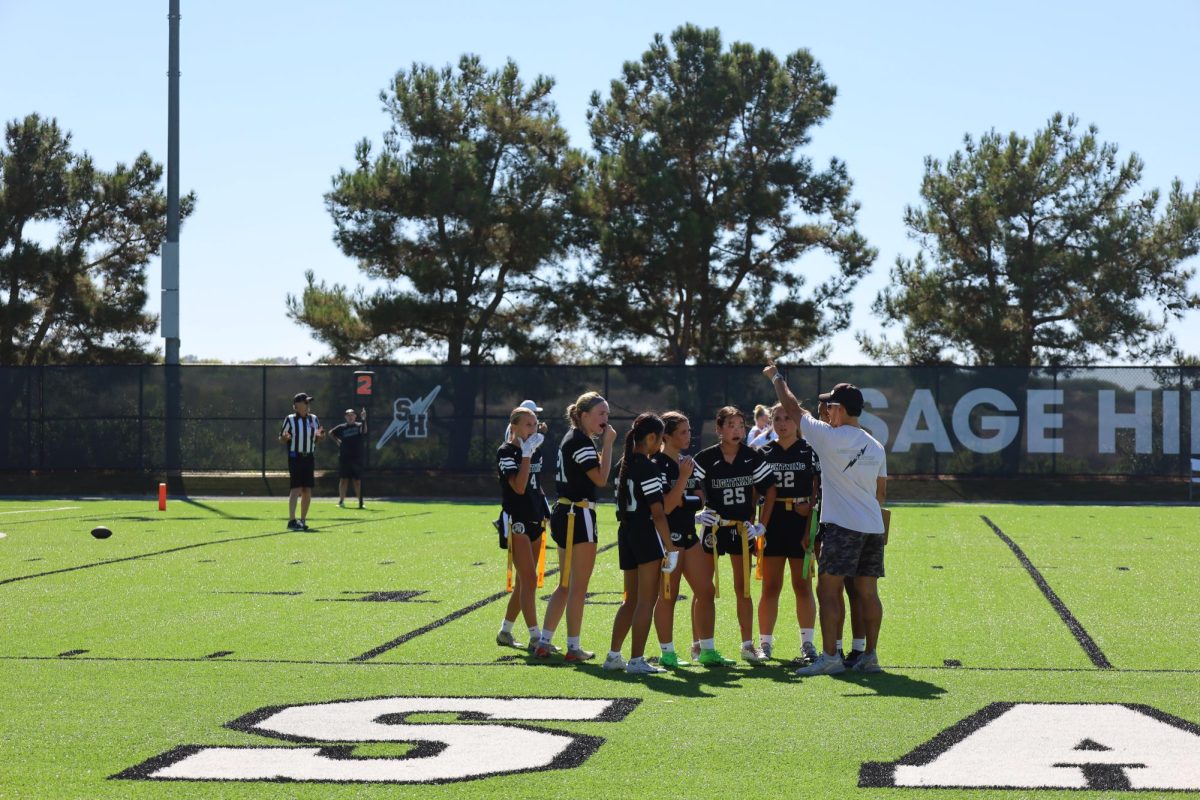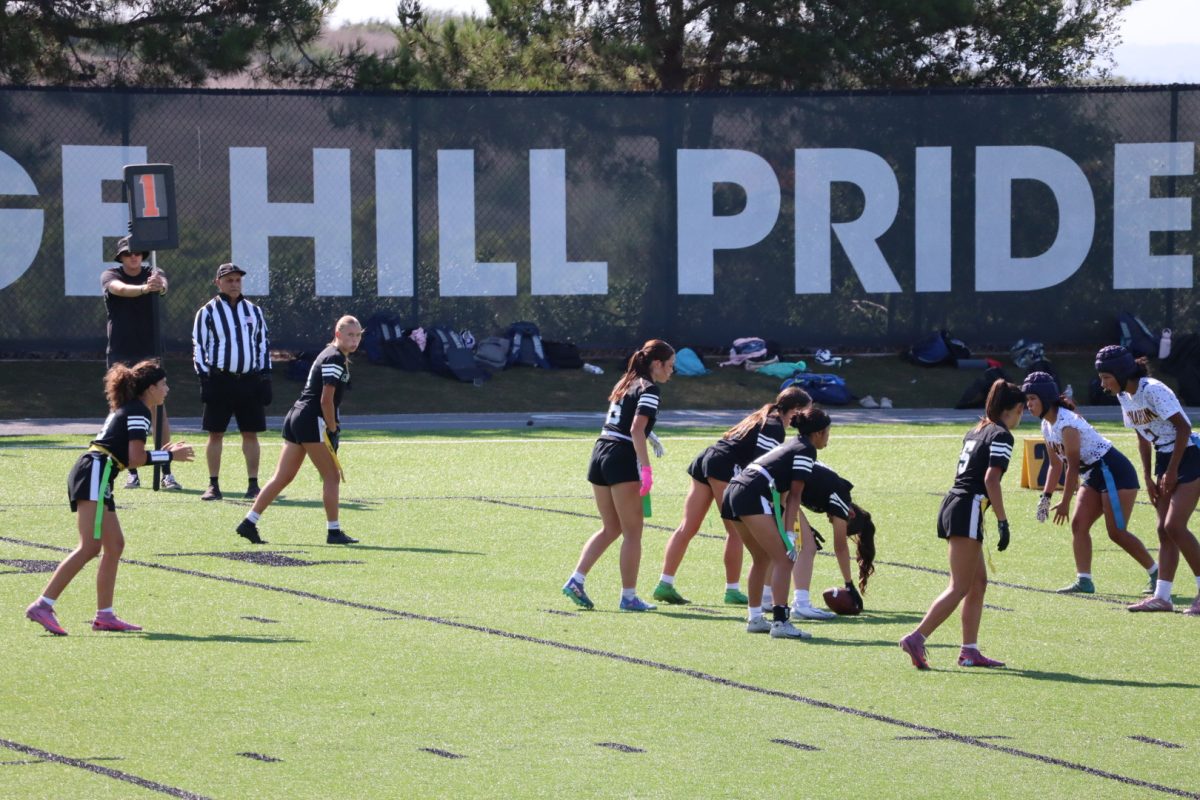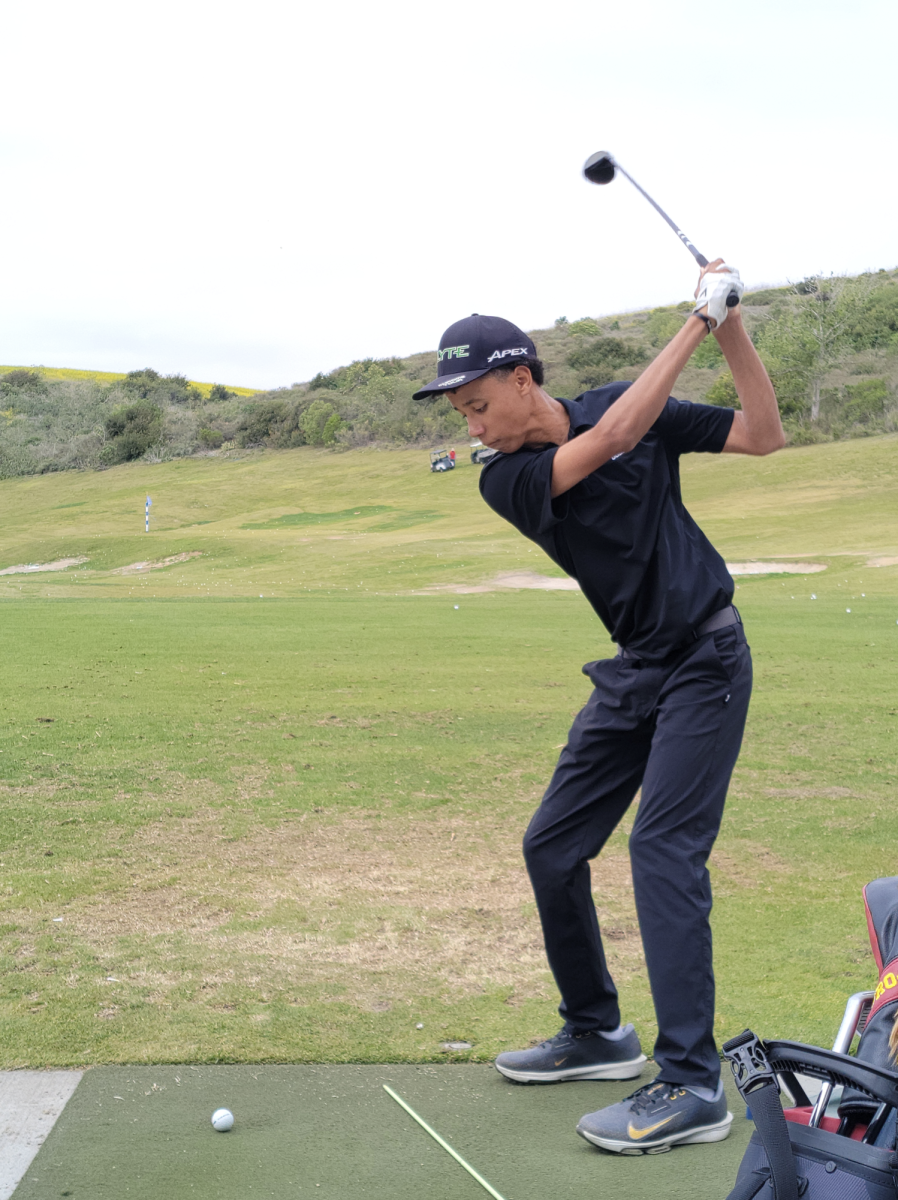As global temperatures soar due to climate change, Sage Hill athletes found themselves crossing uncharted territory with a series of canceled or postponed events amid the heat wave.
A new CIF policy restricting athletes from playing in extreme heat went into effect on Jan. 1. This fall represents the first complete season where this heat acclimation and illness policy must be followed.
“It’s been hard to… navigate and try and figure it out, just because it’s a new [policy],” Director of Athletics Megan Cid.
Ten events spanning six days were canceled last month, briefly interrupting Girls’ Tennis, Boys’ Water Polo, Girls’ Flag Football and Girls’ Golf, according to the Sage Athletics Calendar.
Using a Wet Bulb Globe Thermometer, which measures heat stress in direct sunlight, this new rule provides high schools with a chart that highlights different temperature brackets and necessary precautions for each category. Some of these precautions include mandatory hydration breaks, maximum outdoor practice time, and removing some protective gear.
The most significant effect of this rule is delayed or canceled games and practices. Schools that are more inland see far more days with triple-digit temperatures than Sage Hill. However, the process of canceling or delaying a game remains the same for Sage Hill and other high schools.
Jacqueline Davidson, Sage Hill’s Athletic Trainer, measures the Wet Bulb Globe Thermometer every day at noon. The Sage Hill Athletic Department then makes a prediction as to whether the temperatures will be dangerous for athletes later in the day.
“We’re just kind of trying to take our best guess [to protect athletes,]” Cid said.
If the conditions are not safe to practice or host a game, Cid quickly contacts the other school’s athletic director, instructs coaches from each school to connect, cancels buses, informs fans and families.
Often, these safeguards have the most impact on athletes in outdoor sports such as football and tennis. These limitations and delays have disrupted practice schedules and athletes’ plans.
“We had to play games after a whole week of not practicing which made us feel very unprepared,” said sophomore Aanya Pillai, a flag football athlete.
However, athletes are beginning to realize that this rule is necessary for their safety and will put their best interests at the forefront of athletic games.
“We want to make sure we play in conditions that are safe and allow us to thrive and feel well,” said Ceyda Shamasi, a senior who plays tennis.
The Athletics Department recognizes these new limitations are necessary to combat the climate crisis and are hopeful heat-related distributions will be limited, Cid said.
The Department has just received permission to buy a Peri Weather Station, which would help Sage Hill receive regular temperature measurements faster and with greater accuracy. Sage Hill athletic coaches look forward to seeing this station installed soon.
“I think anytime you can put the health and safety of your student athletes at the forefront of decisions you’re making, I think it is the right decision to make,” Cid said.





